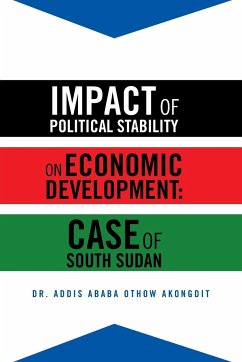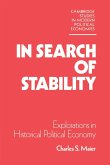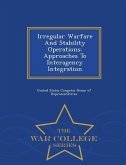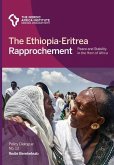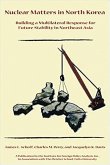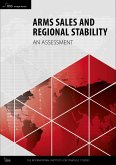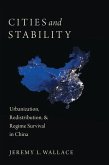The main theme of this study is chosen in response to the general consensus on the importance of conducting a comprehensive study that may shape the economic policies and promote the business sector as well as the government and other organizations. However, the key question posed by this study is whether the theory that political stability fosters economic development is simply the wishful thinking of people who value both stability and growth or whether it is a delusion of those who believe that most developing countries may enjoy rapid growth if they are stable. The importance of this study is clear: South Sudan is confronted with enormous challenges of administrative, ethnic, political, and economic development. In light of this, the current study addresses the following issues: "What is the impact of the political system in South Sudan on economic development? What is the impact of oil resources on sustainable development? What is the impact of the oil shutdown on political and economic stability, and what is the possibility of deficit financing? Is there any possibility for cooperation between Sudan and South Sudan?" In this context, the major objective of this study is to analyze the political development of the country to verify that political stability fosters the achievement of economic and social development. It also seeks to analyze the political history of Sudan in general and South Sudan in particular, emphasizing the importance of political stability, among other considerations, as a precondition for socioeconomic development. Furthermore, other objectives of the study include suggestions on how political stability could be ensured in South Sudan and how good governance may promote political and economic stability. However, the key question posed by this study is whether the theory that political stability fosters economic development is simply the wishful thinking of people who value both stability and growth or whether it is a delusion of those who believe that most developing countries may enjoy rapid growth if they are stable. The importance of this study is clear: South Sudan is confronted with enormous challenges of administrative, ethnic, political, and economic development. In light of this, the current study addresses the following issues: "What is the impact of the political system in South Sudan on economic development? What is the impact of oil resources on sustainable development? What is the impact of the oil shutdown on political and economic stability, and what is the possibility of deficit financing? Is there any possibility for cooperation between Sudan and South Sudan?" In this context, the major objective of this study is to analyze the political development of the country to verify that political stability fosters the achieve-ment of economic and social development. It also seeks to analyse the political history of Sudan in general and South Sudan in particular, emphasising the importance of political stability, among other considerations, as a precondition for socio-economic development. Furthermore, other objectives of the study include suggestions on how political stability could be ensured in South Sudan and how good governance may promote political and economic stability.

